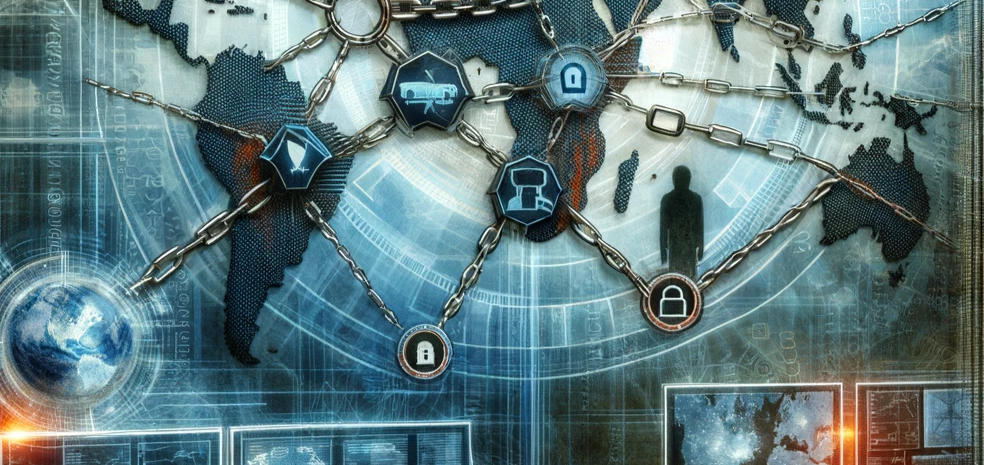In an increasingly interconnected world, the supply chain is the lifeblood of commerce, intricately linking various global entities in a complex web of transactions and exchanges. Yet, beneath the surface of this bustling trade network lies a dark underbelly, often obscured from the public eye. This article delves into the hidden vulnerabilities of international trade, highlighting the risks associated with cyberattacks, counterfeiting, and human trafficking within supply chains, and provides insights into real-world examples of these threats and the strategies used to mitigate them.
Cybersecurity: The Invisible Threat
Cybersecurity is a critical concern in supply chain management. As companies increasingly rely on digital systems to manage their supply chains, they become vulnerable to cyberattacks. These attacks can range from data breaches to ransomware, causing significant financial loss and damage to a company’s reputation.
A notable example of this was the 2017 NotPetya cyberattack, which caused havoc across multiple global companies. Shipping giant Maersk was one of the worst affected, with the attack crippling its IT systems and leading to an estimated loss of $300 million. This incident highlights the need for robust cybersecurity measures in the supply chain.
To combat such threats, companies are now investing in advanced cybersecurity technologies, including blockchain and AI-driven security systems. These technologies help in monitoring supply chain operations in real-time, detecting anomalies, and preventing unauthorized access to sensitive data.
Counterfeiting: Eroding Brand Value and Consumer Trust
Counterfeiting is another significant threat to supply chains. It not only erodes brand value but also poses serious risks to consumer safety. The pharmaceutical industry, for instance, has been battling the scourge of counterfeit drugs, which can have deadly consequences.
In response, companies are employing sophisticated tracking and authentication technologies. For example, RFID tags and blockchain technology are being used to track the journey of products from manufacture to sale, ensuring authenticity. In 2020, a luxury fashion brand implemented an AI-based system to trace the origin of raw materials used in their products, significantly reducing the incidence of counterfeit goods in their supply chain.
Human Trafficking: The Ethical Blind Spot
Human trafficking in supply chains represents a grave ethical issue. It often goes unnoticed, as victims are hidden within the layers of subcontracting in global trade. The electronics and clothing industries, in particular, have been criticized for labor abuses in their supply chains.
To address this, some companies have started conducting thorough audits of their suppliers, ensuring compliance with labor laws and ethical standards. For instance, a leading tech company published its Supplier Responsibility Report, revealing the steps taken to eliminate forced labor from its supply chain, including the termination of contracts with suppliers found violating labor laws.
Successful Mitigation Strategies
The fight against these hidden vulnerabilities requires a multifaceted approach. Companies are now adopting more transparent and ethical supply chain practices. They are investing in technology to gain better visibility and control over their supply chains. Collaborative efforts, like information sharing and joint initiatives between businesses and governments, are also vital in combating these risks.
For example, the Global Cyber Alliance, an international, cross-sector effort, has been instrumental in developing tools and strategies to prevent cyber threats in supply chains. Similarly, the Fashion Revolution movement works towards greater transparency in the fashion industry, encouraging brands to disclose information about their supply chains.
The complexities of modern supply chains expose them to various hidden vulnerabilities. While the risks of cyberattacks, counterfeiting, and human trafficking are significant, there is a growing awareness and proactive effort among companies to address these issues. Through technological innovation, ethical practices, and collaborative efforts, the dark underbelly of international trade is gradually being brought to light, making supply chains not only more secure but also more humane and responsible.

